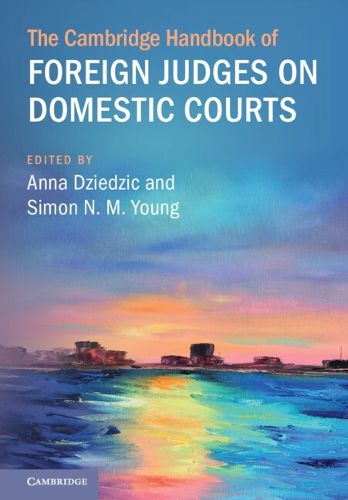Readings Newsletter
Become a Readings Member to make your shopping experience even easier.
Sign in or sign up for free!
You’re not far away from qualifying for FREE standard shipping within Australia
You’ve qualified for FREE standard shipping within Australia
The cart is loading…






Foreign judges sit on domestic courts in over fifty jurisdictions worldwide. They serve on ordinary courts, including apex and constitutional courts, as well as specialist courts, such as international commercial courts and hybrid criminal tribunals. This Handbook presents the first global comparative study of this long-standing, diverse and evolving practice, from colonial precedents to new forms of foreign judging in contemporary conditions of globalisation. Chapters by scholars of law, politics and history, and reflections by judges themselves, provide detailed information and critical analysis of foreign judging across Africa, Asia, the Caribbean, Europe, the Middle East and the Pacific. The chapters examine the notion and relevance of foreignness, rationales for foreign judges, and the implications for judicial identity, adjudication, independence and accountability. Focusing on an underexplored issue that features mainly in small states and jurisdictions of the Global South, this Handbook challenges assumptions and expands knowledge about courts and judges.
$9.00 standard shipping within Australia
FREE standard shipping within Australia for orders over $100.00
Express & International shipping calculated at checkout
Foreign judges sit on domestic courts in over fifty jurisdictions worldwide. They serve on ordinary courts, including apex and constitutional courts, as well as specialist courts, such as international commercial courts and hybrid criminal tribunals. This Handbook presents the first global comparative study of this long-standing, diverse and evolving practice, from colonial precedents to new forms of foreign judging in contemporary conditions of globalisation. Chapters by scholars of law, politics and history, and reflections by judges themselves, provide detailed information and critical analysis of foreign judging across Africa, Asia, the Caribbean, Europe, the Middle East and the Pacific. The chapters examine the notion and relevance of foreignness, rationales for foreign judges, and the implications for judicial identity, adjudication, independence and accountability. Focusing on an underexplored issue that features mainly in small states and jurisdictions of the Global South, this Handbook challenges assumptions and expands knowledge about courts and judges.